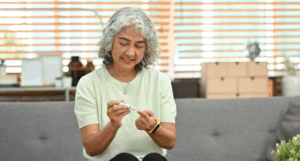Innovative programme to boost parent carer mental health goes national

Photo by Caleb Oquendo on Pexels
A group programme developed by University of Exeter researchers and parent carers is helping address a lack of support nationally for parents of disabled children.
Parent carers – adult primary caregivers for a disabled child – face increased risk of mental and physical health problems. Many prioritise caregiving and fighting for support for their children, and may neglect their own wellbeing.
Healthy Parent Carers is a programme of face-to-face or virtual group sessions, delivered by trained facilitators who are themselves parent carers. It promotes empowerment, resilience and confidence, and encourages taking small steps and setting achievable goals associated with better health and wellbeing.
The programme has been tested in a series of studies examining its effectiveness and cost-effectiveness, and whether it could be delivered in community settings and remotely via Zoom. A current NIHR-funded project is investigating whether it is accessible and acceptable to parent carers from diverse social and ethnic groups, ensuring equitable access for all families who might benefit, and reducing the risk of reinforcing health disparities.
The team behind Healthy Parent Carers is now upscaling the training of facilitators across the country, to enable more families to benefit from the programme. Local authorities, charities and other organisations wishing to commission the programme can enrol a lead and assistant facilitator on the 7-session training course, to gain the accreditation necessary to deliver Healthy Parent Carers in their area.
Erin Stevens is a Family Help Worker in Northumberland and a parent carer of two children. She took part in the Healthy Parent Carers programme last year as a participant and has now trained as a facilitator.
Erin said: “The programme made me reflect on my own health and helped me to make little changes. When parent carers get together, we tend to talk about our children and what their additional needs are, but this is very clear, that’s not what the course is about. It’s about thinking about how to look after yourself by doing things differently. What I realise now is that if parents are not in a good way, we can’t look after our children as they need.
“I think other parents who are in a similar boat to myself can really benefit from the programme. I feel a lot less isolated now, like I’m not the only one out there.”
Professor Christopher Morris, Professor of Child Health Research, University of Exeter Medical School, leads the project as well as PenCRU. He said: “Healthy Parent Carers is the only peer-led group-based health promotion programme conceived, designed, and delivered by parent carers for parent carers. There is lots of evidence that parent carers are at risk of poor mental and physical health, and these problems were exacerbated during the pandemic when many services and supports were withdrawn.
“Yet until now, the health needs of parent carers have largely been neglected, with potential adverse impacts on their children and families. It is so richly rewarding to see the programme being implemented around the country by our delivery partner organisations, who are charities and local authorities.”
Bel McDonald is the lead trainer for Healthy Parent Carers. She said: “I have been involved in the programme from the very beginning as I was part of the team who co-created it. All those years ago I could never have foreseen the impact the programme would have, and that we would be training facilitators from across the country to deliver it.
“The programme has been described as life-changing and transformative. Participants have formed lasting friendships and peer support networks where previously they had felt quite isolated. Some have returned to work or started volunteering but most importantly, they have learnt why it is important to consider their own needs and the importance of looking after themselves.



